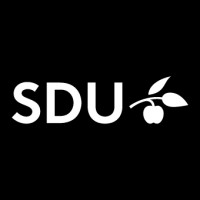PhD in the modern carbon cycle
University of Southern Denmark.com
Office
Odense M, Denmark
Full Time
PhD in the modern carbon cycle
A 3-year PhD position is available at Nordcee, Department of Biology, University of Southern Denmark, Denmark. The start date is January 1st, 2026.
We are seeking a PhD candidate to explore the dynamics of organic carbon recycling in the modern carbon cycle. The weathering of sedimentary rocks is a crucial step in the carbon cycle, removing oxygen from the atmosphere and returning CO2 to the atmosphere. Yet the efficiency over which rock-bound (petrographic carbon) is oxidized or recycled is highly uncertain.
This PhD will use RAMAN spectroscopy as a tool to explore the dynamics of petrographic carbon recycling in modern sediments, rivers and in experimental systems. Flume experiments will be used to explore for petrographic carbon is sorted and cycled in experimental systems, while analyses of modern marine sediments will reveal the quantitative importance of petrographic carbon recycling. Weathering environments will also be explored to determine the rates of petrographic carbon oxidation on land.
The work will be conducted in the Villum Foundation-funded center EnBiE (Center for Environmental and Biological Evolution) with the Nordcee group.
We are looking for ambitious candidate with an MSc degree in sedimentology, geochemistry, or geobiology, although a degree in related environmental sciences will also be considered.
For further information please contact Don Canfield (dec@biology.sdu.dk) or Sami Nabhan (nabhan@biology.sdu.dk).
About the Department of Biology
The Department of Biology (approximately 200 employees) conducts a wide range of research within the broad and diverse field of biology. Our research is organized in 5 research groups; focusing on more specific, but still diverse, disciplines and biological focus areas.
About Nordcee
At Nordcee, six key research areas are explored, Microbes and Element cycles; Deep-sea research, Co-evolution of Life and Earth, Oxygen, Greenhouse gases and climate, Sustainability and biotechnology: How microorganisms interact with their environment with a particular focus on how microbes influence the biogeochemical cycling of elements, even in the deepest places on Earth, the abyssal plains and hadal trenches; How life and Earth co-evolved over billions of years and how microbial life gave rise to oxygen creating beneficial conditions for the emergence of complex lifeforms; How microbes in the Anthropocene act as sinks or sources of various greenhouse gases. Finally, how to harness microbial microorganisms for sustainable technologies of the future with geo- and bio-engineering strategies.
About SDU
The University of Southern Denmark is Denmark’s third largest university with campuses across the country. As part of the Faculty of Science, the Department of Biology is located in Odense, the University’s largest campus. Odense is the country’s third largest city and is centrally located with easy commutes to Copenhagen and Aarhus (approximately 1½ hour).
Living and working in Denmark
Foreign applicants will be offered Danish language training as part of the employment. International Staff Office (ISO) at SDU provides a variety of services for new employees, guests and people who consider applying for a job at the University of Southern Denmark. Among other things, the staff answers questions concerning salary, taxation, housing and accompanying family. Additional information about working in Denmark can be found at Work in Denmark.
PhD in the modern carbon cycle
Office
Odense M, Denmark
Full Time
October 9, 2025
